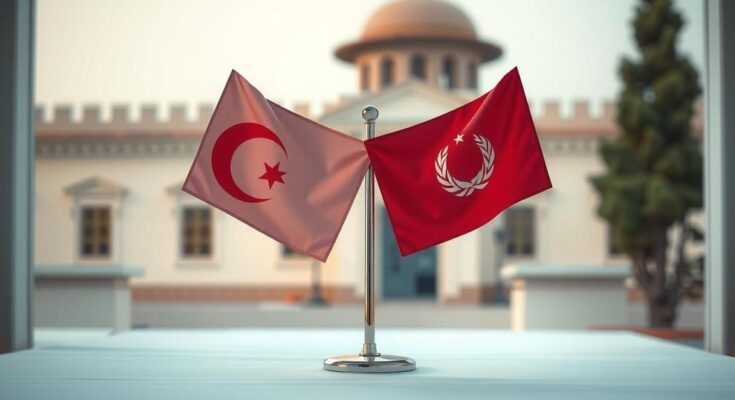Iran’s Foreign Minister, Abbas Araghchi, visited Kabul on January 26, 2025. The first such visit in eight years involved discussions on Afghan refugees, border tensions, and water rights. Araghchi reaffirmed Iran’s commitment to aiding refugees while respecting Afghan domestic affairs, highlighting the need for improved relations despite Iran’s non-recognition of the Taliban regime.
On January 26, 2025, Iran’s Foreign Minister, Abbas Araghchi, visited Kabul, marking the first trip by an Iranian foreign minister to Afghanistan in eight years. During this visit, he met with prominent Taliban officials, including Acting Prime Minister Mohammad Hassan Akhund and Foreign Minister Amir Khan Muttaqi, to address several pressing issues concerning their shared border, the treatment of Afghan refugees, and the management of water resources.
Araghchi emphasized Iran’s commitment to facilitating the return of approximately 3.5 million Afghan refugees and asserted that Iran does not intend to interfere in Afghanistan’s internal affairs. He also called for adherence to the Helmand River water treaty, which aims for equitable sharing of water resources. Akhund requested that Iran treat Afghan refugees humanely and acknowledged the challenges of managing significant repatriation in a short timeframe.
During discussions, he pointed out that incidents such as reported executions of Afghans in Iran have stirred public unrest and discontent. Additionally, Araghchi reiterated his hopes for enhanced economic cooperation between Afghanistan and Iran, acknowledging the fluctuating nature of their relations.
While Iran does not officially recognize the Taliban regime, which took control in 2021, it maintains essential political and economic links with Afghanistan and allows the Taliban to oversee its embassy in Tehran. This visit signifies a step towards further dialogue and negotiation between the two nations.
The recent meeting between Iran’s Foreign Minister and Taliban leaders signifies a pivotal moment in Iran-Afghanistan relations, particularly following the Taliban’s rise to power in 2021 amid the withdrawal of U.S. and NATO forces. Over 3.5 million Afghan refugees currently reside in Iran, prompting discussions on their treatment and potential repatriation. The shared resource management, specifically concerning the Helmand River, also remains a fundamental concern, underscoring the need for ongoing diplomatic engagement between the two countries.
This meeting illustrates the continuing complexities of Iranian-Taliban relations, as both parties seek to navigate shared challenges such as refugee management and water resource allocation. Furthermore, despite Iran’s reluctance to formally recognize the Taliban government, the establishment of dialogues and calls for cooperation suggest a pragmatic approach to fostering regional stability. The commitment to address issues affecting Afghan refugees and a desire for improved economic relations reflect an effort to maintain a functioning partnership.
Original Source: apnews.com




